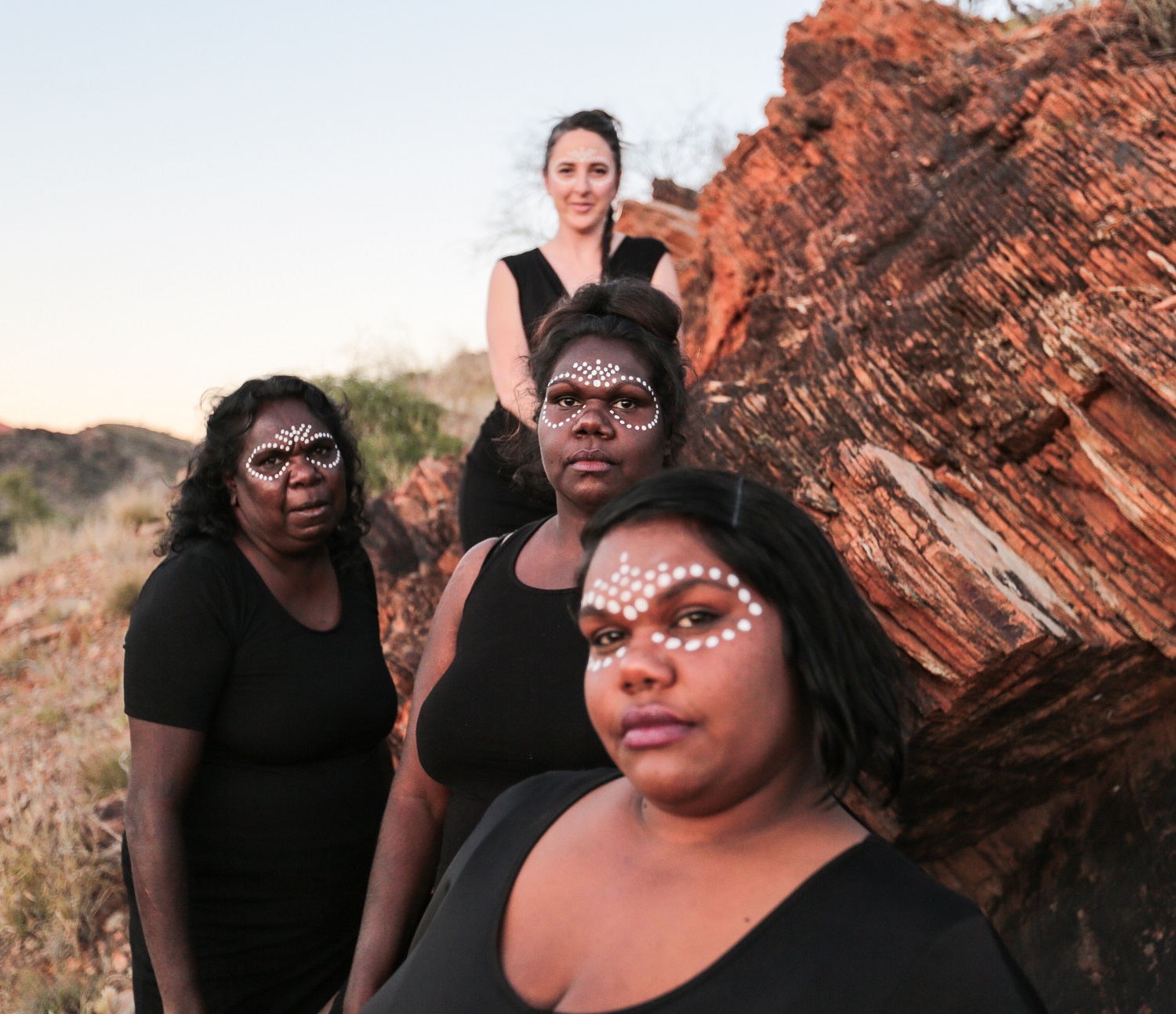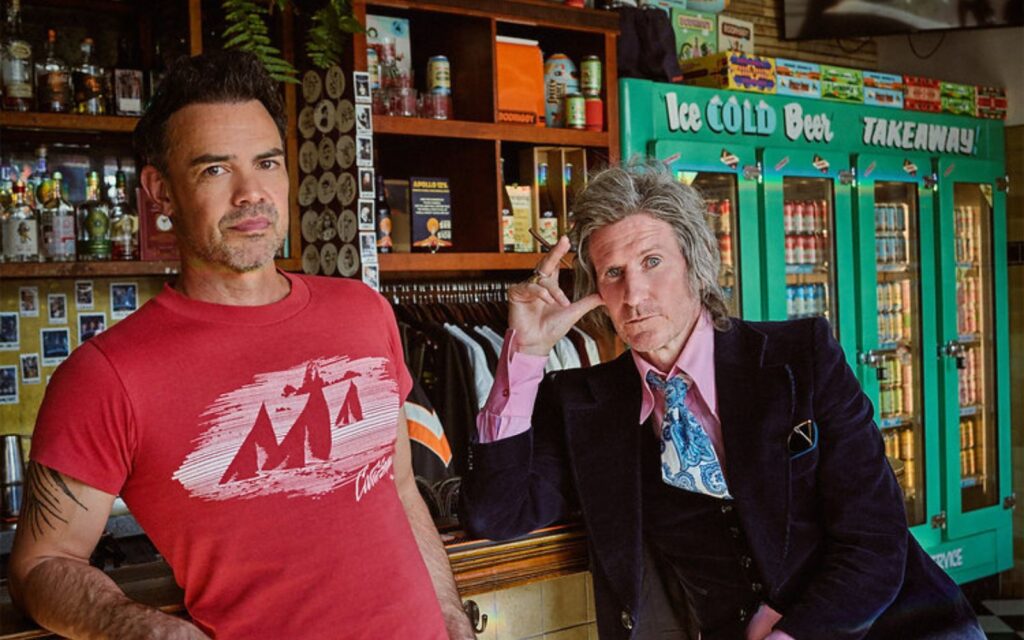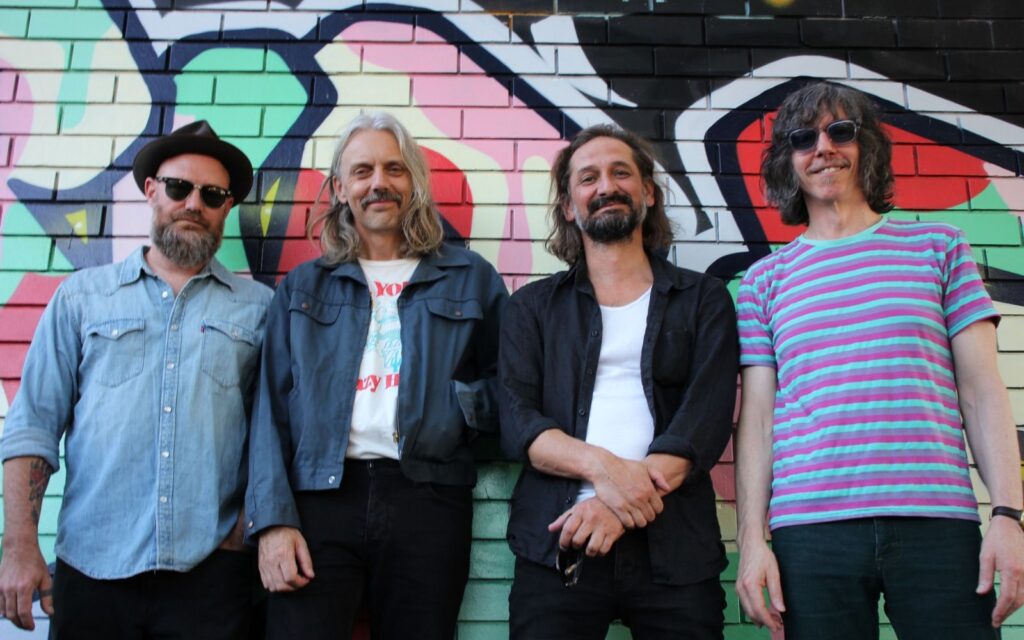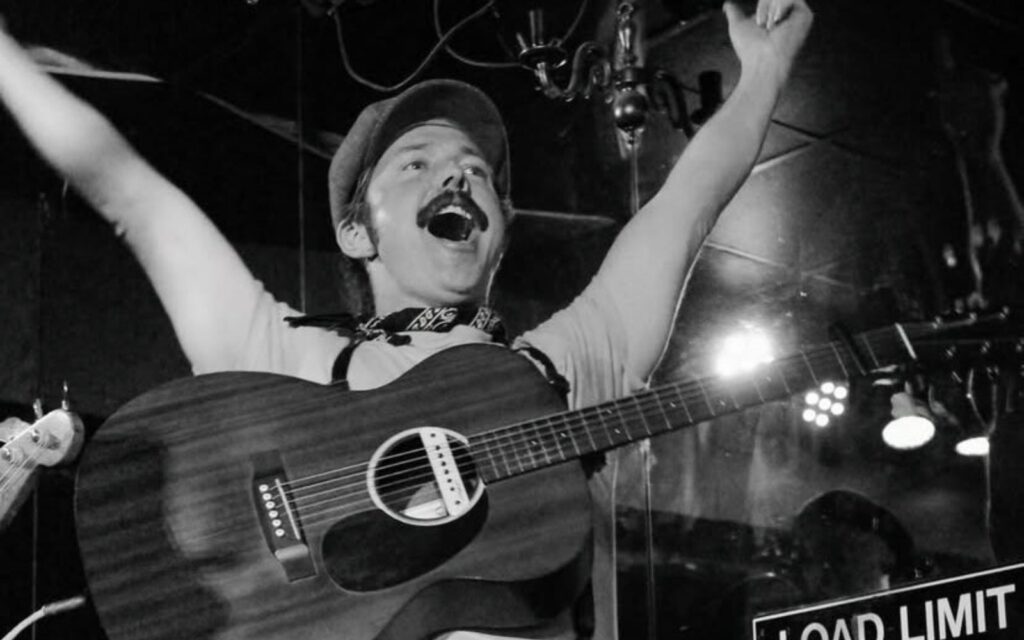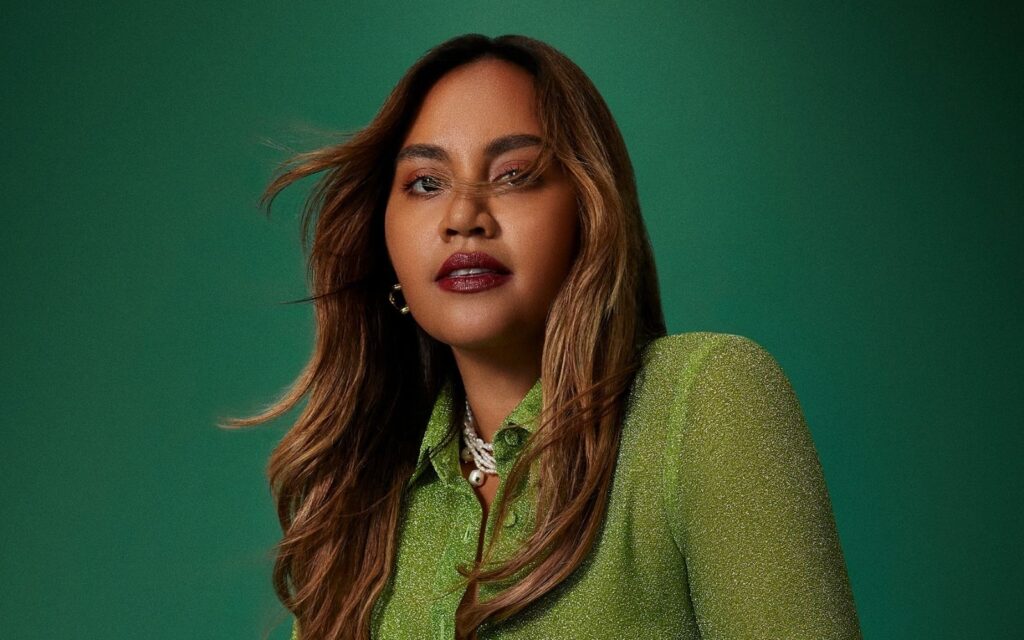“I feel like music is a really powerful tool to make change. To empower people and share stories.” Beatrice Lewis speaks with wisdom and conviction. Her passion is infectious, and her story riveting.
She’s one of the four brilliant women who make up Kardajala Kirridarra (Sandhill Women) – a group who weave language, culture and history together in their music. They’ve touched the souls of many, and have taken their respective communities and wider Australia by storm.
A friend in Alice Springs piqued Lewis’ interest in support work among Indigenous communities. It was a fateful visit to the Bush Bands Bash some eight years ago that got the ball rolling. “It was the most amazing musical experience of my life. The music, people, all the old grandmas at the front shaking it. I was like, “Wow, what is this place? This is amazing.’
“After that, I really wanted to come up and meet some people, and share skills. I feel very much the humble student in the desert.”
Lewis has since spent much of her career in the desert, using “music and the arts as a tool for community development and self-empowerment.” In her time, she’s worked on MusicNT’s acclaimed programmes Sister Sounds and Desert Divas, but it was working on the Barkly Region Council’s Desert Cultures Project that laid the foundations for Kardajala. “Myself and some of the other facilitators were working with some older and young ladies talking story and making music.
“Then they said, ‘You should come to Marlinja and meet this woman called Eleanor Dixon. She has a really amazing voice, and I think you two would really get along.’ I was about to take a little break from going to the desert, because I have my own solo project that was going really well but as soon as I met Ellie I had to work with her.”
Meeting Eleanor was a very special experience for Lewis. “We started writing music together, I was very touched by her and felt very connected to her. The way that she translates ‘normala’ – the spirit of the country – through her music and her words, is really unique and special. I feel really lucky to work with her.”
From there, they reached out to Eleanor’s auntie Janey and began to collaborate with Kayla Jackson – a rapper in neighbouring community Kulumindini (Elliot). Kardajala Kirridarra was officially established.
Lewis lives in Melbourne, but spends a few months of her year in the Northern Territory. It’s a long commute: flying into Alice Springs, then driving eight or nine hours north to Kulumindini and Marlinja. By all means though, it’s worth it, with Lewis experiencing the natural beauty of the community all year round.
“I get to go up throughout all the different phases of the year – in the wet season, and the dry season, and the hot season. It’s cool to be out in country through all those different cycles because they’re so song-like.”
In addition to the thematic influences, these seasons literally shaped the sound of their self-titled record. “In the hot season, we’d have to record really quickly, because we’d have to turn the air conditioning off while we recorded. You’d have to quickly get a take, and then turn the air conditioning back on before you melted.
“I don’t know how it’d feel if we weren’t recording or writing in Marlinja. It feels like the country is so into music, it feels odd to think about writing it anywhere else.”
The beauty of Kardajala is their ability to break down barriers, imparting the beauty and wonders of Indigenous culture to audiences far and wide. This is a sentiment which Lewis holds dearly.
“It’s really important for Mudburra to be heard, and it’s really important for these women’s stories to be heard.
“The response has been very humbling and also really exciting. It makes me really believe in the goodness of Australia. And despite what’s happening in the political system and in this part of the world, in the hearts of a lot of Australians, there’s so much openness and will to learn and connect with culture. If that can happen through music, that’s awesome.”
